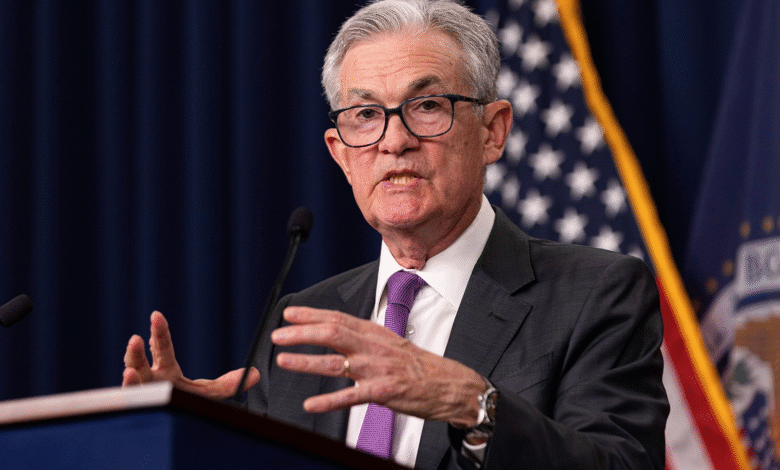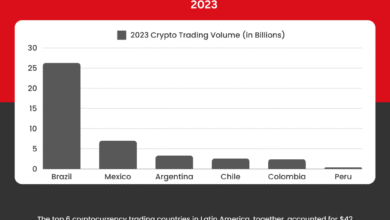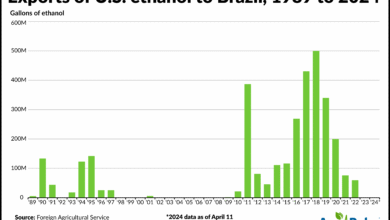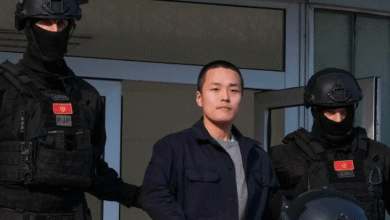Federal Reserve Chair Selection: Bessent Leads the Search

As the term of Federal Reserve Chair Jerome Powell approaches its conclusion in May 2026, all eyes are on Treasury Secretary Scott Bessent, who is leading the search for Powell’s successor. With President Trump gearing up to announce a new nominee, the stakes are high for the future direction of Fed interest rates and monetary policy. Bessent, considered a potential Trump Fed nominee himself, is navigating this critical transition period with a keen awareness of the market risks involved. The decisions made in the coming weeks could have lasting implications not just for the economy, but also for Trump’s broader economic agenda. As the white smoke rises from Washington, the financial world watches closely, anticipating who will step into Powell’s shoes and steer the nation’s monetary policy into the next chapter.
In the wake of Jerome Powell’s impending departure from the helm of the Federal Reserve, the role of selecting his replacement has been entrusted to Treasury Secretary Scott Bessent. As discussions swirl around potential candidates, including favorites like Kevin Warsh and Christopher Waller, the administration is poised to announce a new leader shortly. The dynamics surrounding monetary policy are shifting as Trump aims to align the Federal Reserve’s strategies with his own economic vision. With Bessent actively engaging in this pivotal search, the decision on who will oversee interest rate adjustments and economic stability is more critical than ever. The upcoming weeks are set to define the future of U.S. economic policy as we await news on Powell’s successor.
The Role of Treasury Secretary Bessent in Selecting the Next Fed Chair
Treasury Secretary Scott Bessent has emerged as a central figure in the search for the next Federal Reserve Chair, following the announcement that Jerome Powell’s term will conclude in May 2026. Bessent’s extensive experience in economic policy uniquely positions him to influence the selection process significantly. His participation demonstrates the administration’s intent to expedite this decision, a move that could reflect President Trump’s broader economic strategies.
In a landscape where interest rates and monetary policy are pivotal, Bessent’s insights could shape the future trajectory of the Federal Reserve. As he navigates potential candidates, including his own consideration for the role, his dual position allows him to assess not only the candidates’ qualifications but also their alignment with the Trump administration’s economic agenda. This is especially crucial as analysts speculate how Powell’s successor might approach Fed interest rates and other monetary policies.
Market Implications of Powell’s Potential Replacement
The possibility of a new Federal Reserve Chair brings forward significant implications for financial markets. Given Scott Bessent’s warnings about the risks associated with prematurely replacing Jerome Powell, there is an underlying tension within the markets. Investors are closely monitoring the situation, as the uncertainty around monetary policy could prompt volatility. Should Bessent or another candidate aligned closely with Trump’s fiscal policies take the helm, it may lead to a shift in how the Fed manages interest rates.
Market analysts are considering how Trump might leverage his appointment to implement an economic agenda that prioritizes lower interest rates and a favorable trading environment. The urgency of finalizing a successor before Powell’s term ends further complicates this scenario, as the timeline may present risks if not handled delicately. The balance between implementing new policies and maintaining market stability remains a key discussion point among economists as the potential transition looms.
Candidates Under Scrutiny for Fed Chair Role
As the search for Jerome Powell’s replacement heats up, several prominent candidates have emerged, each bringing a unique perspective to the table. Notable contenders such as former Fed governor Kevin Warsh and current Fed governor Christopher Waller are being closely watched. Warsh, for instance, has been publicly vocal against certain Fed policies, raising questions about the credibility and direction of the institution moving forward.
Within this spectrum, Treasury Secretary Scott Bessent stands out both as a potential candidate and as a key player in the selection process. His role ensures that the final decision will not only consider individual qualifications but will also reflect broader economic strategies championed by the Trump administration. This dual influence may sway the future direction of the Federal Reserve and its approach to critical issues such as interest rates and market regulation.
Impact of Political Climate on Federal Reserve Leadership
The interplay between political leadership and the Federal Reserve chairmanship is more crucial than ever. As Treasury Secretary Bessent navigates a rapidly changing political environment, the implications of his decisions cannot be overlooked. The potential upcoming replacement of Jerome Powell could signal a shift in Federal Reserve policies, especially if the new chair is more favorable to Trump’s economic views.
In light of market responses and public sentiment, the political climate will inevitably shape the characteristics of Powell’s successor. Bessent’s selections will likely be scrutinized for their economic ideologies, particularly in relation to Fed interest rates and their responsiveness to inflationary pressures. This evolving dynamic underscores the importance of political considerations in financial policymaking.
The Federal Reserve’s Influence on Economic Policy
The Federal Reserve’s decisions significantly impact the overall economic landscape by influencing interest rates, inflation, and employment levels. As discussions about Powell’s successor heat up, Treasury Secretary Bessent is highlighting the importance of this leadership role in navigating economic challenges. The choice of a new chair could ultimately reflect a shift in economic policy, pivoting toward a more aggressive stance in addressing Trump’s objectives regarding inflation and trade.
The Fed’s credibility and approach to managing economic crises will be under scrutiny as a potential change in leadership occurs. Bessent has emphasized the need for a candidate who understands both the complexities of monetary policy and the broader economic environment. This duality will be essential in ensuring that the Fed maintains its independence while still aligning with the current administration’s goals.
Challenges in Transitioning Fed Leadership
Transitioning leadership within the Federal Reserve poses unique challenges that could reverberate through the financial markets. As noted by Bessent, the decision to replace Jerome Powell must be executed carefully to avoid financial instability. Any abrupt changes to leadership could trigger market fluctuations as investors react to uncertainty around future Fed policies and interest rate adjustments.
Bessent’s role in the selection process emphasizes the need for a smooth transition in leadership to preserve trust in the Fed’s operations. This continuity is vital, not just for economic stability, but also for fostering confidence among both domestic and international markets. The precision of the timing and the character of the successor will play a pivotal role in shaping how investors perceive the Fed’s mission moving forward.
Expectations from the Next Federal Reserve Chair
With the appointment of a new Federal Reserve Chair on the horizon, expectations are high regarding the direction of U.S. monetary policy. The incoming chair’s approach to interest rates, inflation management, and overall economic stability will be critical. Candidates under consideration, including Bessent, have differing views that will attract varying levels of market confidence and investor sentiment.
Market analysts will be closely attuned to how the new chair responds to ongoing economic challenges, particularly inflationary pressures and trade issues. Bessent’s insight into the selection process suggests that the new appointee will need to balance the administration’s goals while maintaining the Fed’s independence in decision-making. This delicate interplay will set the stage for the Fed’s future operational landscape.
The Future of Interest Rates Under New Leadership
As speculation mounts regarding the next Fed Chair, attention turns to how interest rates will be managed moving forward. The incoming leader will face the crucial task of addressing current economic conditions, including inflation, while possibly reevaluating past strategies under Powell. Bessent’s involvement in this transition increases the likelihood that any new policy direction will align with Trump’s fiscal strategies.
Interest rates are a vital instrument of the Fed, influencing everything from consumer spending to business investments. The selection of a successor who shares the administration’s views could potentially pave the way for more proactive measures in adjusting interest rates in response to economic changes. Observers will look for clear signals from the new leadership on whether they will prioritize stability or actively seek to adapt fiscal policies.
Public Sentiment and Regional Perspectives on Fed Policies
Public sentiment plays a significant role in the Federal Reserve’s operations, particularly in how they are perceived in relation to regional economic needs. The search for Powell’s successor, with Scott Bessent at the helm, is reflective of a broader conversation about how Fed policies can address the diverse economic landscapes across the United States. Understanding regional economic disparities will be crucial for the new chair.
As the administration seeks to identify a candidate capable of navigating these complex dynamics, the Fed’s ability to maintain public trust and credibility will be paramount. The sensitivities around economic policies, especially concerning interest rates and inflation control, will impact how the new leadership is received across various regions. Bessent’s emphasis on candidate selection underlines the importance of aligning Fed actions with the public’s economic expectations.
Frequently Asked Questions
What is the role of the Federal Reserve Chair in monetary policy?
The Federal Reserve Chair, currently Jerome Powell, plays a crucial role in shaping U.S. monetary policy, including setting interest rates, regulating banks, and maintaining financial stability. The Chair’s decisions impact inflation, employment, and economic growth.
Who is likely to succeed Jerome Powell as Federal Reserve Chair?
The search for Jerome Powell’s successor involves Treasury Secretary Scott Bessent and several candidates, including Kevin Warsh and Christopher Waller. Speculation is high about who will be nominated by President Trump, given Powell’s term ends in May 2026.
What has Treasury Secretary Bessent advised regarding the replacement of the Federal Reserve Chair?
Treasury Secretary Scott Bessent has cautioned that an early replacement for Federal Reserve Chair Jerome Powell could introduce risks to the financial markets. He emphasizes the need to carefully consider the timing and implications of any changes in leadership.
How do Fed interest rates affect the economy, according to Powell’s policies?
Under Jerome Powell’s leadership, Fed interest rates influence borrowing costs for consumers and businesses. Lower interest rates can stimulate economic growth, while higher rates aim to control inflation. The selection of a new Chair could shift these policies significantly.
What impact might a Trump nominee have on the Federal Reserve’s future direction?
A Trump-appointed successor to Federal Reserve Chair Jerome Powell could bring a shift in economic policy, aligning monetary policy more closely with the administration’s agenda. This may affect interest rate strategies and overall economic regulation.
| Key Points | Details |
|---|---|
| Treasury Secretary Bessent’s Role | Actively involved in selecting the next Federal Reserve Chair as Powell’s term ends in May 2026. |
| Potential Successors | Candidates include Scott Bessent, Kevin Warsh, Kevin Hassett, Christopher Waller, and David Malpass. |
| Timeline for Selection | Announcement expected from President Trump in the coming weeks, with formal interviews beginning shortly. |
| Concerns Over Market Impact | Bessent warns that an early replacement could unsettle financial markets. |
| Alignment with Trump’s Economic Agenda | Early replacement seen as aligning the Fed’s policies with Trump’s views on interest rates and inflation. |
Summary
Federal Reserve Chair Jerome Powell’s term is drawing to a close, prompting Treasury Secretary Bessent to actively lead the search for his successor. This process highlights the significance of aligning the Federal Reserve with the current administration’s economic strategies. As President Trump prepares to announce a successor, the implications for financial markets and monetary policy will be closely monitored.




